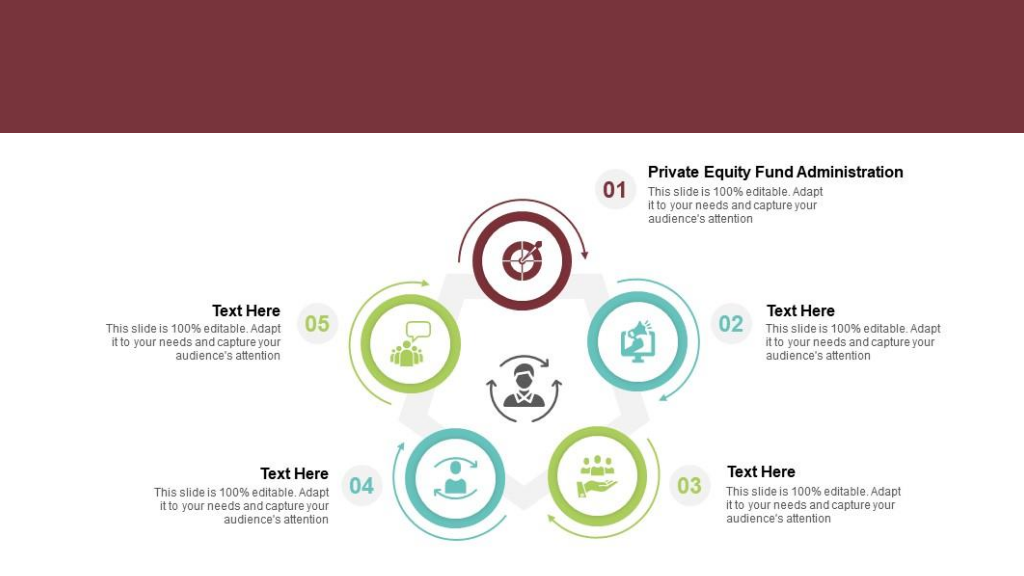Private equity fund administration is a crucial aspect of managing private equity funds, involving various tasks such as fund formation, investor relations, fund accounting, valuation services, regulatory compliance, portfolio monitoring, fund operations, technology solutions, and more. This article explores the intricacies of private equity fund administration and its importance in the investment landscape.
Fund Formation
Private equity fund formation encompasses several key steps, including selecting the appropriate legal structure, ensuring regulatory compliance, and drafting comprehensive fund documentation. Legal structure selection involves choosing between various options such as limited partnerships, limited liability companies, or corporations, considering factors like tax implications and investor preferences. Regulatory compliance involves adhering to laws and regulations governing the formation and operation of private equity funds, which may vary depending on jurisdiction. Fund documentation includes drafting offering memoranda, limited partnership agreements, subscription agreements, and other legal documents outlining fund terms and conditions.
Investor Relations
Effective investor relations are essential for private equity funds to attract and retain investors. This involves managing capital commitments, providing timely and accurate investor reporting, and efficiently managing distributions. Capital commitment tracking involves recording and monitoring investors’ commitments to the fund, ensuring compliance with capital calls and distributions. Investor reporting includes preparing periodic reports detailing fund performance, investment activities, and financial statements for distribution to investors. Distribution management involves coordinating and executing distributions to investors in accordance with fund terms and regulatory requirements.
Fund Accounting
Fund accounting encompasses various tasks related to financial reporting and management, including net asset value (NAV) calculations, financial statement preparation, and expense management. NAV calculations involve determining the value of the fund’s assets and liabilities to calculate its net asset value per share. Financial statement preparation involves preparing comprehensive financial statements, including balance sheets, income statements, and cash flow statements, in accordance with generally accepted accounting principles (GAAP) or other applicable accounting standards. Expense management involves tracking and managing fund expenses, including management fees, performance fees, and operating expenses, to ensure accurate financial reporting and budgeting.
Valuation Services
Accurate valuation of portfolio investments is critical for private equity funds to assess performance and report fair value to investors. Valuation services include portfolio valuations, fair value measurements, and performance reporting. Portfolio valuations involve determining the fair market value of the fund’s investments using various valuation techniques, such as discounted cash flow analysis, comparable company analysis, and precedent transactions analysis. Fair value measurements involve assessing the fair value of illiquid or hard-to-value assets, considering factors such as market conditions, financial performance, and industry trends. Performance reporting involves presenting performance metrics and benchmarks to investors, highlighting the fund’s investment returns and performance relative to peers and benchmarks.
Regulatory Compliance
Private equity fund administrators must navigate complex regulatory requirements and ensure compliance with applicable laws and regulations. Regulatory compliance includes regulatory filings, anti-money laundering (AML) compliance, and know-your-customer (KYC) procedures. Regulatory filings involve submitting required reports and disclosures to regulatory authorities, such as the Securities and Exchange Commission (SEC) or other relevant regulatory bodies. AML compliance involves implementing policies and procedures to prevent money laundering and terrorist financing activities, including customer due diligence and transaction monitoring. KYC procedures involve verifying the identity of investors and conducting background checks to mitigate the risk of fraud and illicit activities.
Portfolio Monitoring
Portfolio monitoring is essential for private equity funds to track investment performance, assess risk exposure, and make informed investment decisions. This includes investment tracking, risk assessment, and performance analysis. Investment tracking involves monitoring the fund’s portfolio investments, tracking capital deployment, and assessing investment performance against target benchmarks and investment objectives. Risk assessment involves identifying and evaluating various risks, including market risk, credit risk, and operational risk, to assess the overall risk profile of the fund’s investment portfolio. Performance analysis involves analyzing investment performance metrics, such as internal rate of return (IRR), multiple of invested capital (MOIC), and cash-on-cash return, to evaluate the fund’s investment strategy and performance relative to expectations and industry benchmarks.
Fund Operations
Efficient fund operations are essential for the smooth functioning of private equity funds, encompassing tasks such as cash management, trade processing, and reconciliation services. Cash management involves managing the fund’s cash flows, including capital contributions, distributions, and investment expenses, to ensure adequate liquidity and efficient fund operations. Trade processing involves executing and settling investment transactions, including buying and selling portfolio assets, monitoring trade confirmations, and reconciling trade discrepancies. Reconciliation services involve reconciling various fund records, including cash balances, investment positions, and transaction records, to ensure accuracy and integrity of financial data.
Technology Solutions
Technology plays a vital role in enhancing the efficiency and effectiveness of private equity fund administration, with solutions ranging from fund administration platforms to data management systems and cybersecurity measures. Fund administration platforms provide comprehensive tools and functionalities for fund accounting, investor relations, portfolio management, and regulatory compliance, streamlining administrative processes and improving data accuracy and accessibility. Data management systems enable efficient storage, processing, and analysis of fund-related data, facilitating informed decision-making and reporting. Cybersecurity measures are essential for protecting sensitive fund and investor data from cyber threats and unauthorized access, including implementing encryption, firewalls, and access controls to safeguard digital assets and information.
Outsourcing vs. In-house Administration
Private equity funds have the option to outsource fund administration services to third-party providers or establish in-house administration capabilities, each with its advantages and considerations. Outsourcing offers benefits such as cost savings, access to specialized expertise, and scalability, allowing funds to focus on core investment activities while leveraging external resources for administrative tasks. However, outsourcing may also pose risks such as loss of control, potential conflicts of interest, and reliance on external service providers. In-house administration provides greater control and customization over administrative processes but requires significant investment in infrastructure, technology, and personnel, as well as ongoing maintenance and compliance efforts.
Emerging Trends
The private equity fund administration landscape is continuously evolving, with several emerging trends shaping the industry’s future, including ESG integration, digital transformation, and artificial intelligence (AI) adoption. ESG integration involves incorporating environmental, social, and governance (ESG) factors into investment decision-making and reporting, reflecting growing investor demand for sustainable and responsible investment practices. Digital transformation entails leveraging technology and data analytics to automate administrative processes, enhance operational efficiency, and improve transparency and reporting. AI adoption involves using machine learning algorithms and predictive analytics to analyze data, identify patterns, and make data-driven investment decisions, enabling faster and more informed decision-making and risk management.
Challenges in Private Equity Fund Administration
Private equity fund administrators face various challenges in navigating the complexities of fund administration, including regulatory complexity, data management issues, and cybersecurity risks. Regulatory complexity arises from the ever-changing regulatory landscape, with evolving laws and regulations governing fund formation, operations, and reporting, requiring constant monitoring and compliance efforts. Data management issues stem from the vast amounts of data generated and processed in fund administration, including challenges related to data accuracy, completeness, and integration across different systems and platforms. Cybersecurity risks pose threats to fund and investor data security, including data breaches, ransomware attacks, and phishing scams, necessitating robust cybersecurity measures and risk mitigation strategies.
Case Studies
Examining real-world examples of successful and unsuccessful private equity fund administrations provides valuable insights into best practices, challenges, and lessons learned. Successful case studies highlight effective fund administration strategies, innovative approaches, and factors contributing to positive outcomes, such as strong governance, operational excellence, and alignment with investor interests. Conversely, failed administrations offer cautionary tales, illustrating common pitfalls, mistakes, and challenges encountered in fund administration, such as inadequate due diligence, compliance failures, and operational inefficiencies.
Future Outlook
Looking ahead, the future of private equity fund administration is characterized by growth opportunities, technology advancements, and regulatory developments. Growth opportunities stem from increasing demand for alternative investments, rising investor appetite for private equity, and expanding global markets, driving demand for fund administration services. Technology advancements, including blockchain, artificial intelligence, and data analytics, are poised to revolutionize fund administration, enabling greater automation, efficiency, and innovation across administrative processes. Regulatory developments, such as changes in tax laws, reporting requirements, and compliance standards, will continue to shape the regulatory landscape, influencing fund administration practices and priorities.
Conclusion
In conclusion, private equity fund administration is a multifaceted discipline encompassing various functions critical to the success and integrity of private equity funds. From fund formation to investor relations, fund accounting, valuation services, regulatory compliance, portfolio monitoring, and beyond, effective fund administration is essential for managing investments, satisfying regulatory requirements, and meeting investor expectations. By understanding the complexities, challenges, and emerging trends in private equity fund administration, fund managers, administrators, and investors can navigate the landscape more effectively, driving value and success in the private equity industry.
FAQs
What is private equity fund administration?
Private equity fund administration involves managing various administrative tasks associated with private equity funds, including fund formation, investor relations, accounting, valuation, regulatory compliance, and portfolio monitoring.
Why is private equity fund administration important?
Effective fund administration is crucial for private equity funds to manage investments, satisfy regulatory requirements, and meet investor expectations, ensuring transparency, compliance, and operational efficiency.
What are the key components of private equity fund administration?
The key components of private equity fund administration include fund formation, investor relations, fund accounting, valuation services, regulatory compliance, portfolio monitoring, fund operations, technology solutions, outsourcing considerations, emerging trends, challenges, case studies, and future outlook.
What are the emerging trends in private equity fund administration?
Emerging trends in private equity fund administration include ESG integration, digital transformation, artificial intelligence adoption, and advancements in technology and data analytics, driving innovation, efficiency, and transparency in fund administration practices.
What are the challenges in private equity fund administration?
Challenges in private equity fund administration include regulatory complexity, data management issues, cybersecurity risks, operational inefficiencies, and compliance failures, necessitating robust governance, technology solutions, and risk mitigation strategies.

